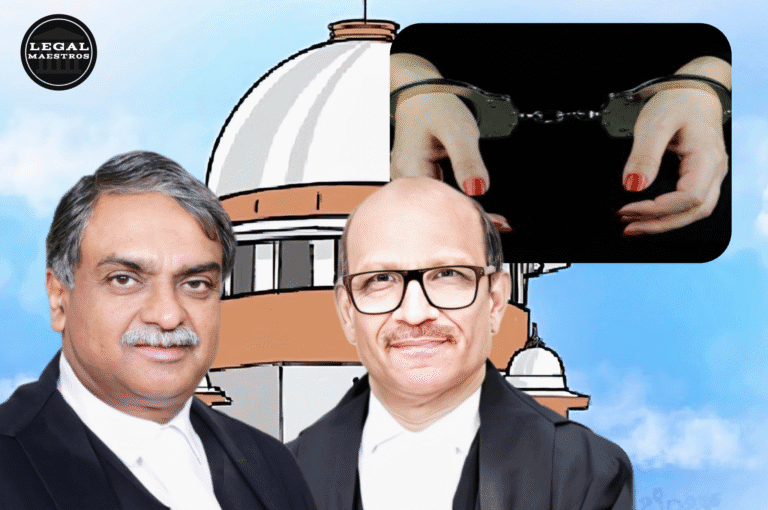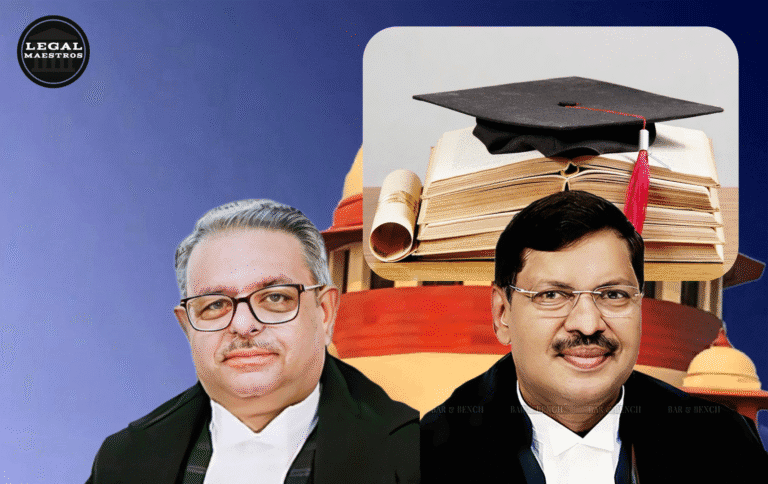
The SC of India, on 21 July 2025, held that the anticipatory bail will be refused in a case where an accused has willfully withheld material facts and hindered investigation. In the case titled Nikita Jagganath Shetty @ Nikita Vishwajeet Jadhav v. State of Maharashtra, the Court allowed the appeal filed by Nikita Shetty, whereby her estranged husband and relatives were charged with unlawful trespass and occupation of her family’s property, Hotel Vaishali at Pune.
Facts
On 2nd July 2023, Nikita Shetty had lodged a complaint against her husband Vishwajeet Jadhav, his brother, and their father for criminal trespass at Hotel Vaishali in Shetty v. State of Maharashtra. The birth father of Nikita was owner of the hotel but was then deceased and intestate, with one legal heir remaining i.e., Nikita. She accused the accused of forcibly removing the CCTV cameras, assaulting the staff members, and giving them false information of the property by way of a fake gift deed and a power of attorney. An FIR was registered under Sec 448, 504, 506, 120B, 464, 465, 468, 471and 420 of IPC.
Although their anticipatory bail was rejected by the sessions court, the Bombay High Court came to the rescue on the strength of the order of the civil court which had originally restrained Nikita from dispossessing possession of the hotel.
For More Updates & Regular Notes Join Our Whats App Group (https://chat.whatsapp.com/DkucckgAEJbCtXwXr2yIt0) and Telegram Group ( https://t.me/legalmaestroeducators ) contact@legalmaestros.com.
That, however, was later found to have been set aside before the High Court could even hear it.
Arguments
Appellant had said the respondents had misrepresented the position before the High Court by keeping under wraps the vacation of the civil injunction. The accused also tampered with CCTV evidence and on the basis of forged documents, sold the hotel for ₹5 crore and intimidated the employees-as acts of evidentiary tampering in active interrogation and in custody.
The State maintained the counterview with emphasis on the seriousness of economic forgery and fraud. The respondents contended that the matter was essentially a matrimonial property dispute and thus civil in nature, and that from a technical standpoint, they were aiding in the investigation.
Judgment
The Supreme Court having heard both sides, felt that the High Court had been misled by the withholding of material facts and been put under a wrong impression of legality. The Court observed that the conduct of the accused illegal entry, tampering with evidence, and deployment of false documents, fell outside a civil dispute and necessitated custodial interrogation.
Following the six-year-old precedent in Srikant Upadhyay v. State of Bihar, the Court reiterated six times that anticipatory bail should be refused when there is suppression of facts or interference with an ongoing investigation. The Court also quashed the order of the High Court and directed the accused to surrender within two weeks but granted them freedom to move for regular bail before the trial court.
Analysis
The Court has clearly reaffirmed that suppression of material facts and attempts to obstruct justice disqualify an accused from seeking anticipatory bail. This decision emphasizes the principle that criminal activity camouflaged as civil disputes particularly those of fraud, trespass, and financial exploitation should not be allowed to go unchecked under the aegis of protective pre-arrest bail.
In addition, the judgment upholds the legislative protection of a woman’s inheritance right, especially in matrimonial disputes. It makes it patently clear that coercive control of a woman’s separate property after marriage in the spirit of possession or relationship will be taken seriously by the judiciary. In requiring custodial interrogation in this case, the Court has underlined the seriousness of white-collar crimes like forgery of documents and money laundering.
Coram:
Justice Vikram Nath
Justice Sandeep Mehta




